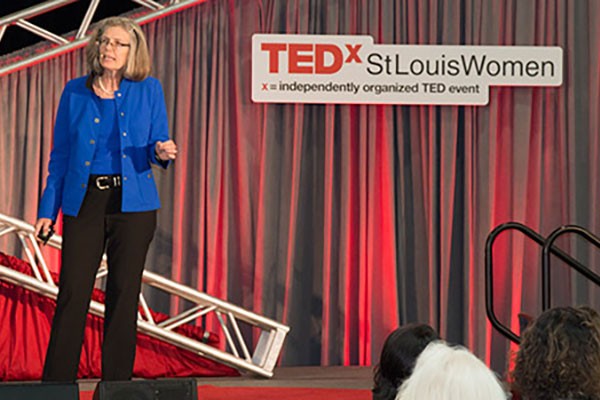Snapshots 6.8.15: Art, books and bashes
Images captured in and around the Washington University campuses.
Medical students’ ‘First Year Funk’ video goes viral
For six consecutive nights, first-year medical student Travis CreveCoeur skipped sleep to direct and edit his class video, “First Year Funk,” a parody of Mark Ronson’s “Uptown Funk.” CreveCoeur thinks the sacrifice was worth it. The video has been viewed 134,000 times and counting.
WashU Expert: Why American Pharoah’s winnings won’t stop at the Triple Crown
American Pharoah captured America’s collective heart at the Belmont Stakes this weekend, galloping his way to the first Triple Crown in 37 years. With the June 6 victory, his value is estimated at $30 million. But the winning doesn’t stop there. Patrick Rishe, PhD, director of the Sports Business Program in the Olin Business School, breaks down the future earning potential of the thoroughbred.
Do cheaters have an evolutionary advantage?
What is it with cheating? Cheaters seem to have an immediate advantage over cooperators, but do they have an evolutionary advantage? A study published in Current Biology suggests the benefits of cheating change with its prevalence,in a population. Cheaters may succeed, for example, only when they are rare, and fail when they become so numerous they push out cooperators.
WashU Expert: Caitlyn Jenner may be turning point in America’s awareness of transgender issues
Caitlyn Jenner’s first public appearance on the cover of Vanity Fair has sparked quite a stir. The Twitter account for Jenner, formerly Bruce Jenner, reached 1 million followers in just over four hours. Her story reminds us that even the most personal decisions are linked to broader social conditions, says an expert on later-in-life gender transitions at Washington University in St. Louis.
Fraser speaks about antibiotic resistance at TEDxStLouisWomen conference
Victoria J. Fraser, MD, head of the Department of Medicine, was a featured speaker at TEDxStLouisWomen, Thursday, May 28. The presentations were part of TEDWomen, a national conference focused on women and girls as creators and change-makers. Fraser spoke about antibiotic resistance and its evolution into a public health crisis.
WashU Expert: Americans ‘care deeply about their privacy’
Several key provisions of the Patriot Act ended this week, after the Senate let them expire. As a result, the National Security Agency has, at least temporarily, halted the bulk data collection program used to amass phone data for millions of Americans. Neil Richards, JD, professor of law at Washington University in St. Louis and one of the country’s foremost academic experts on privacy law, said the fact that expiration of these powers hasn’t provoked mass outrage shows Americans deeply value privacy.
One month remains in Our Washington campaign
Washington University staff and faculty have one more month to join the 5,000 employees who already have contributed to Our Washington, the faculty and staff component of Leading Together: The Campaign for Washington University. Donations support scholarships, strengthen academic and scientific initiatives, advance learning and enhance facilities.
Shanghai office opens with innovation and entrepreneurship workshop
In response to a growing number of alumni and expanding
research and education partnerships in China, Washington University in
St. Louis is opening an office in Shanghai’s Knowledge Innovation
Community. “The Shanghai office will serve as a key resource for
our alumni, prospective students and friends,” Chancellor Mark S.
Wrighton said.
Snapshots 6.1.15: Bikes, birds and special recognitions
Images captured in and around the Washington University campuses.
View More Stories

